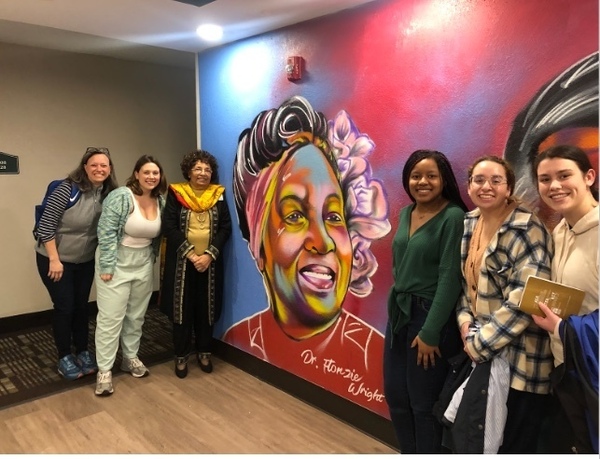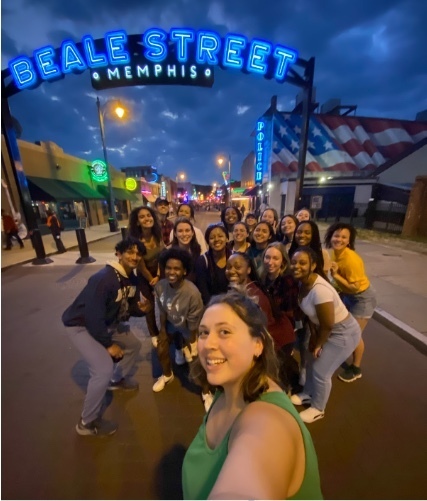While I was discerning where I would go to college, Notre Dame’s mission to be a force for good stood out amongst the missions of the other great colleges I had been admitted to which drove me to choose Notre Dame over them. When I got to campus freshman year, the Center for Social Concerns, for short students call it the CSC, felt like the preeminent place to

practice out Notre Dame’s mission. The CSC worked since its inception to “affirm and ensure the dignity and wellbeing of all people—especially the marginalized—and to promote flourishing communities both locally and globally through a mix of moral inquiry and action” through a lens of Catholic social tradition (CST). Throughout my years at Notre Dame so far, I have been provided with a multitude of opportunities to embody Notre Dame’s mission to be a Force for Good.
During my freshman year, I got involved with the Higgins Labor Program through a class I took called “Labor, Narrative, and CST”. The Higgins Labor Program falls under the CSC umbrella and is dedicated to “initiating and promoting research, teaching and conversation relevant to the questions, needs, and interests of people who work for a living.” I began by attending the Program’s Labor Cafes which is a monthly conversation with faculty, staff, and students about the pressing present labor issues. I was met with an amazing community of students, faculty and staff whose warmth and hospitality kept me coming back to the CSC.
In my sophomore year, I started working as a student assistant in the CSC and took a “Labor in South Bend” course, “Act Justly” seminar immersion, and “Prison Writing” elective at Westville Correctional. “Labor in South Bend '' explored the labor movement in present day South Bend and how key stakeholders in South Bend could work together to achieve a just wage. The “Act Justly Seminar” provided me with the opportunity to go on a week-long immersion throughout the South to visit key civil rights heritage sites and explore the history of civil rights in the United States. Furthermore, the “Prison Writing” class, taught in Westville Correctional 40 minutes away from campus, promoted an exploration of different ways freedom can be withheld in a classroom setting with half Notre Dame students and half incarcerated folks in the prison.

In my junior year, I was able to continue working as a student assistant during the fall semester and in my spring semester while abroad I was able to visit some of my friends I made through the CSC in the various countries where they were studying abroad. These experiences have been foundational to my academic and social formation and some of my best memories throughout my Notre Dame journey so far.
And now writing this in my senior year working at the front desk at the CSC, I have found that the CSC has provided me with a toolbox of skills and knowledge to understand and approach most conversations on questions of the common good and justice, and the ability to think critically about how to build equitable community flourishing. These experiences and skills are unquantifiable, but they are displayed in my everyday life, actions, and as I use my education to promote others my journey at Notre Dame comes to an end.